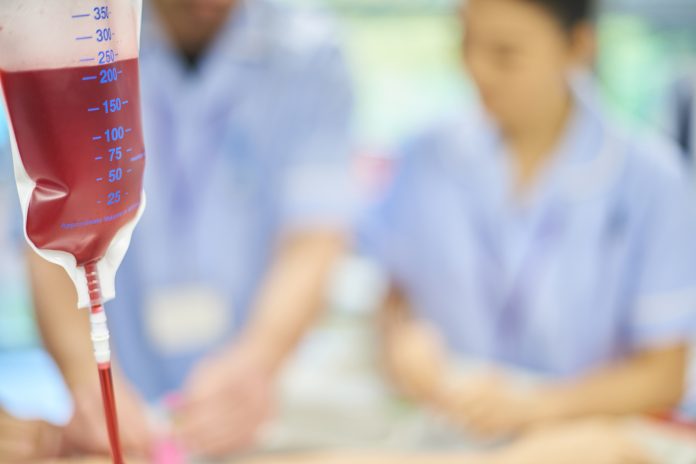Thousands of people affected and infected by the contaminated blood scandal in England will be able to self-refer from today for psychological treatment from a bespoke new NHS service
Following a phased rollout, the Infected Blood Psychological Service is now available in all areas of England. It is accessible to anyone infected by the contaminated blood scandal, as well as bereaved partners, parents, children, and their extended families.
The new psychological service, which began treating its first patients last September, will bring a sense of relief and comfort to the victims and their families. It will include access to talking therapies, peer support and psychosocial support. Victims will also have access to treatments for other physical and mental needs.
What is the contaminated blood scandal?
In the late 1970s and early 1980s, 4,800 British haemophiliacs received blood infected with Hepatitis C through their NHS treatment. Over 1,200 of those individuals subsequently became infected with HIV, the virus that leads to aids. Of those 1,200, more than 800 people have already died, and hundreds more have died from Hepatitis C.
A further 170 non-haemophiliacs became infected with HIV, and many more with Hepatitis C, through contaminated blood and tissue transfusions. It is estimated that over 2,500 people have died because of the infected blood.
The inquiry into the infected blood scandal, formally announced in July 2017, finally concluded on 20 May 2024. The findings can be found here.
Patients will now have access to a psychologist and virtual peer support
From today, patients will be able to self-refer by phone, or they can also be referred to the service by their general practitioner (GP) or other specialist services.
Eligible individuals will be offered a comprehensive psychological review with a psychologist or psychological therapist with specialist expertise in issues facing those infected or affected by contaminated blood or blood products. This comprehensive approach will help guide tailored mental health care plans, ensuring the victims feels secure and well-cared for.
As part of the service, patients will have access to virtual peer support forums, where they can connect with others who have been infected or affected. Additionally, regional in-person networks, which are physical support groups, are available in some areas, where capacity allows.
Through new ‘regional navigators’, the NHS service will also offer additional social support to individuals in other areas of their lives, such as with benefits, housing services or employment and financial advice. These navigators will guide individuals to the appropriate support services based on their needs.
The bespoke support service has been designed following significant research and engagement with those infected and affected, their families and NHS staff, and is being hosted by 16 specialist providers across England, following an open procurement process.
As the service has been rolled out, it has initially been offered to those already known to the providers, with around 150 individuals accessing it since September 2024. However, anyone infected or affected by the contaminated blood scandal can now self-refer for treatment or be referred by their doctor.
The service’s establishment follows the recommendation by Sir Brian Langstaff in the Infected Blood Inquiry’s Second Interim Report, published in April 2023, which outlined the need for a bespoke psychological support service in England.
Professor Meghana Pandit, NHS Co-National Medical Director (Secondary Care), said: “Our thoughts remain with everyone infected and affected by the contaminated blood scandal, and I would like to reiterate our deepest apologies for the role the NHS played in their suffering and loss.
“Following the recommendations of the Inquiry, this new service represents a vital step in ensuring patients and families affected in England can be offered tailored psychological treatment and support, and we are pleased that specialist clinics are now open in all areas of England.
“This bespoke psychological treatment is already making a difference to the lives of the first people to access it, and we now want to ensure everyone eligible is aware of the services provided – you can self-refer for treatment by calling 0300 131 0444 or find out more information on the Infected Blood Psychological Service website: infectedbloodpsychologicalservice.nhs.uk”.
Steph, who was referred into the Infected Blood Psychological Service at the Royal Liverpool University Hospital, said: “Although I was initially hesitant about the service, I’m now so pleased my consultant referred me. Since the start of the Infected Blood Inquiry, my mental health has significantly declined, but the service has been a huge help, and my psychologist has been incredibly supportive”.
Claire Murdoch, NHS national mental health director, said: “The contaminated blood scandal and the subsequent long fight for answers have had life-altering physical and psychological impacts for thousands across the country, and the NHS is determined to ensure that anyone infected or affected can receive evidence-based support and treatment.
It has been so important that the Infected Blood Psychological Service has been co-designed with members of the infected blood community. This collaborative effort ensures the best and most personalised care possible, making the audience feel valued and included in the process.”











